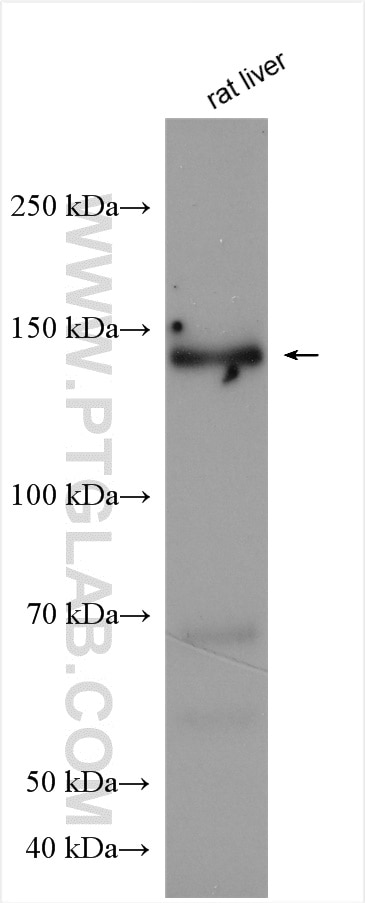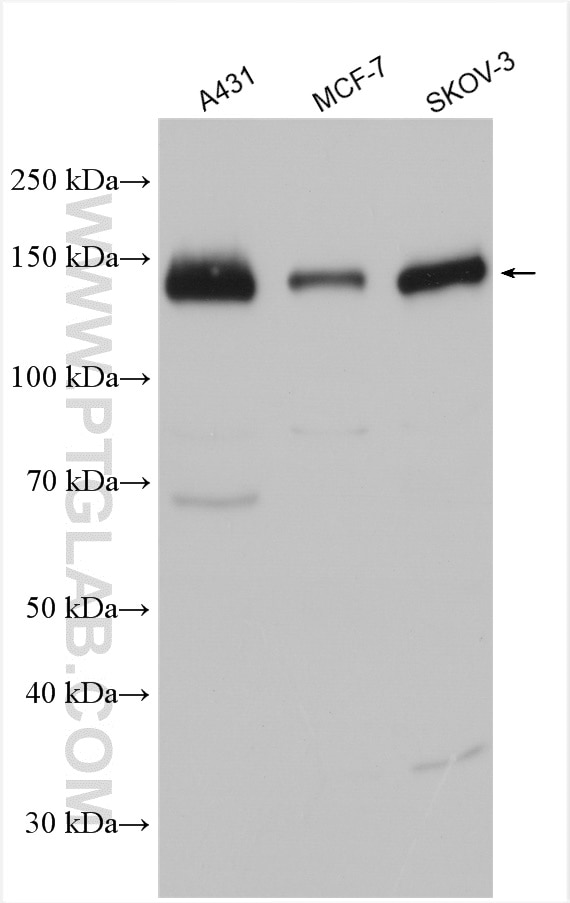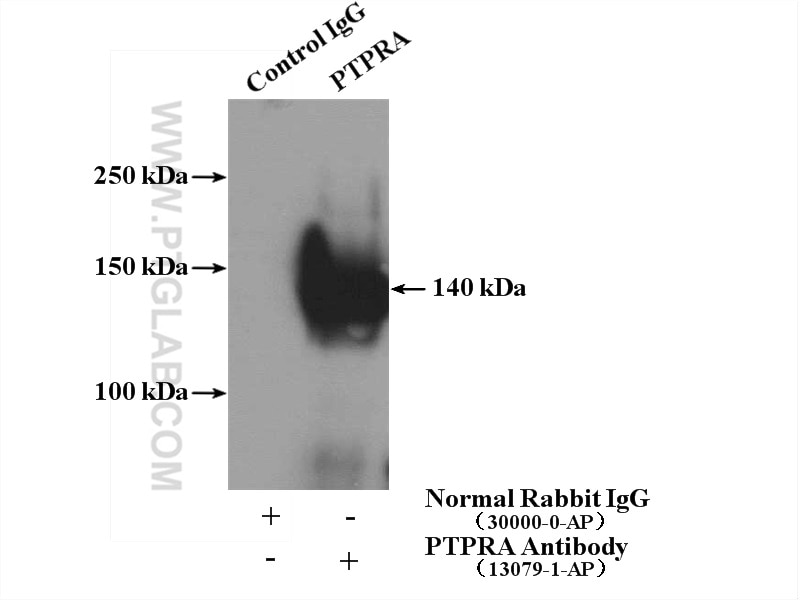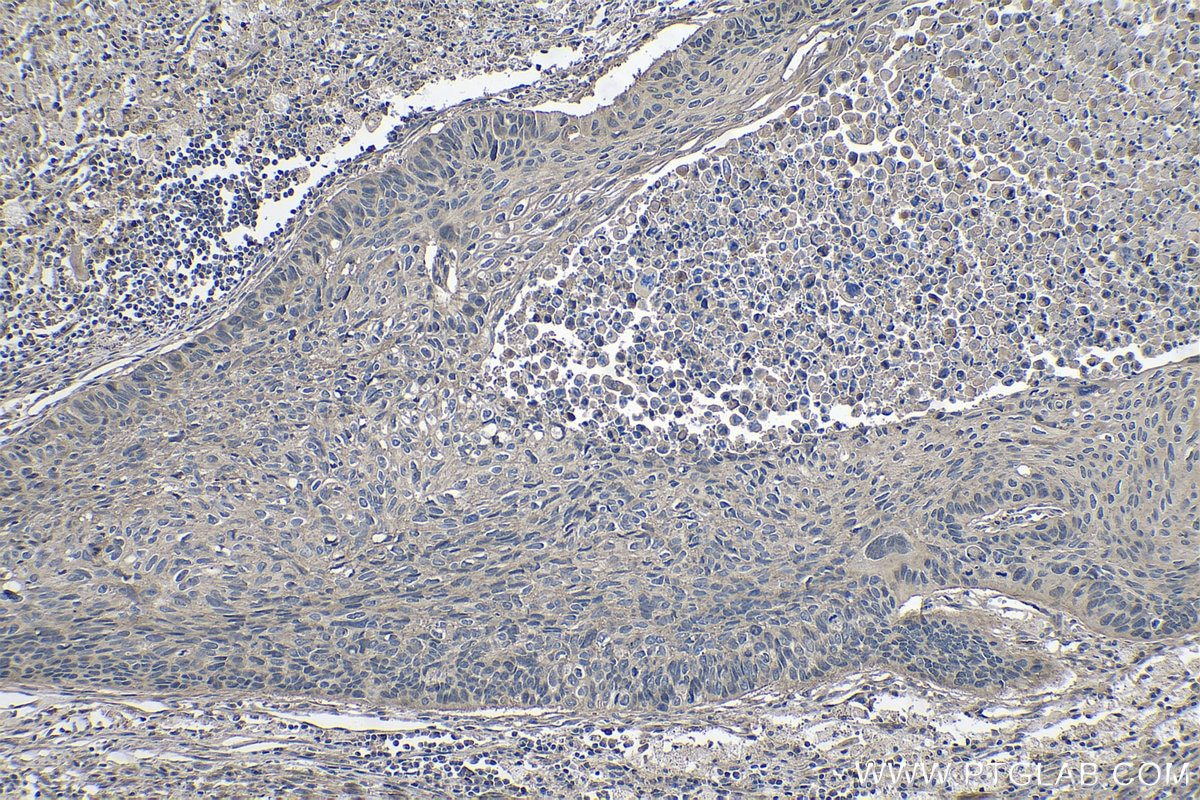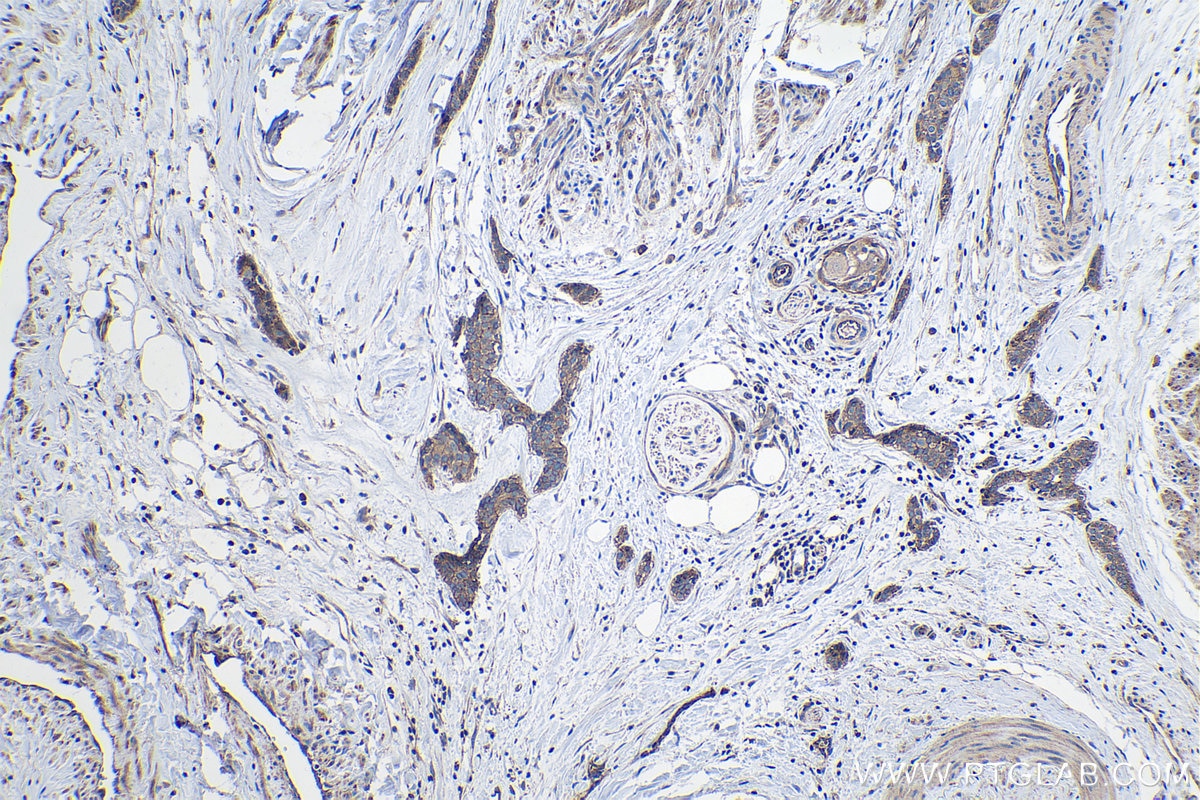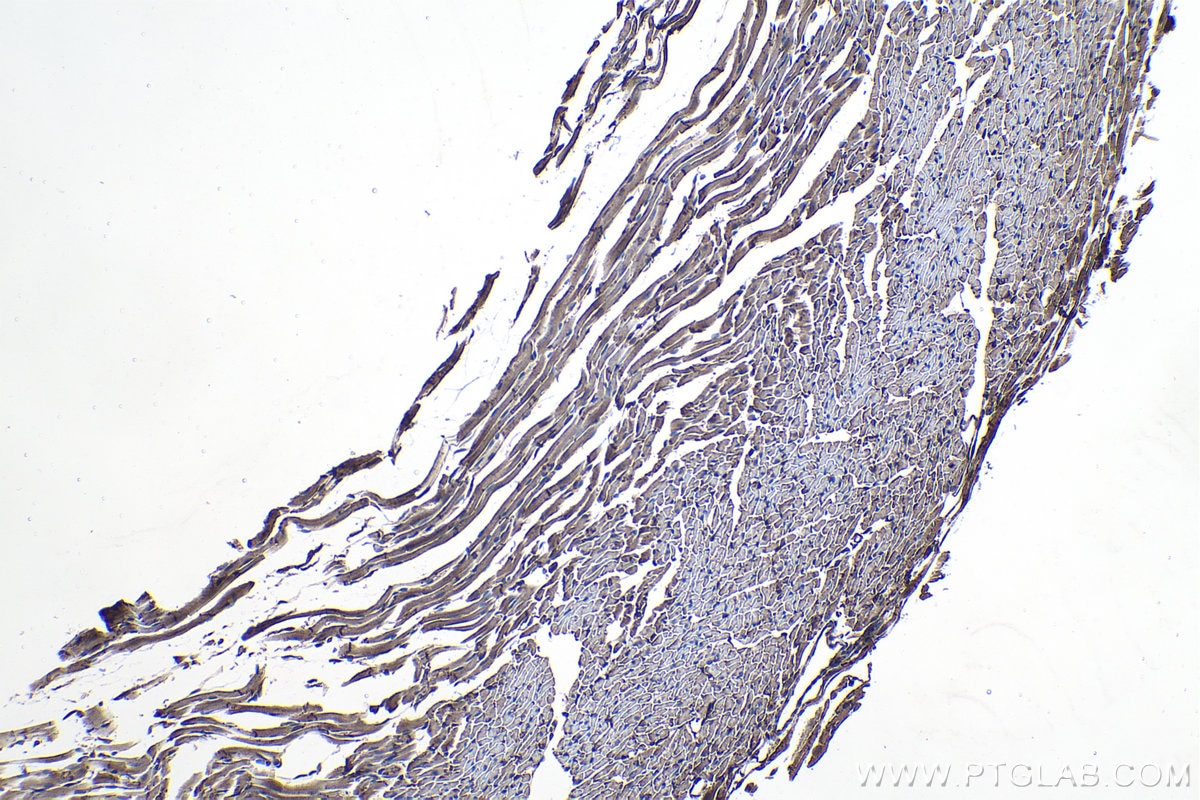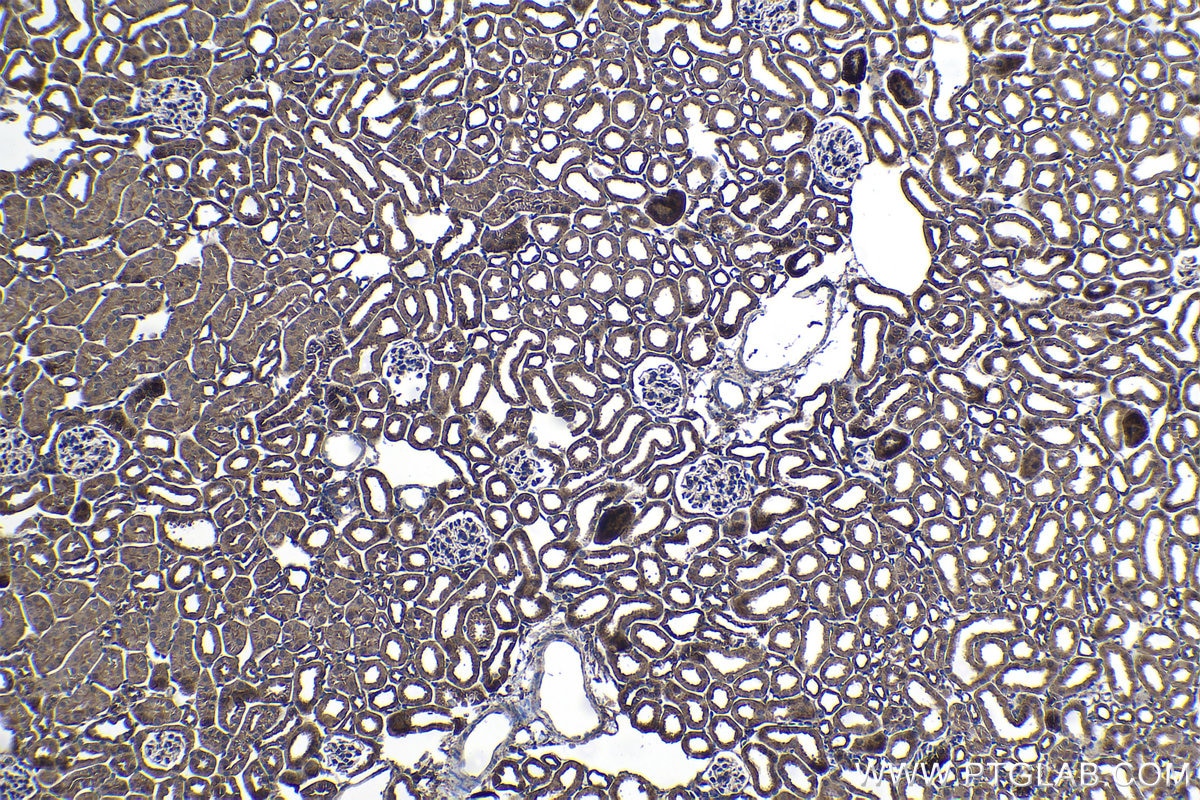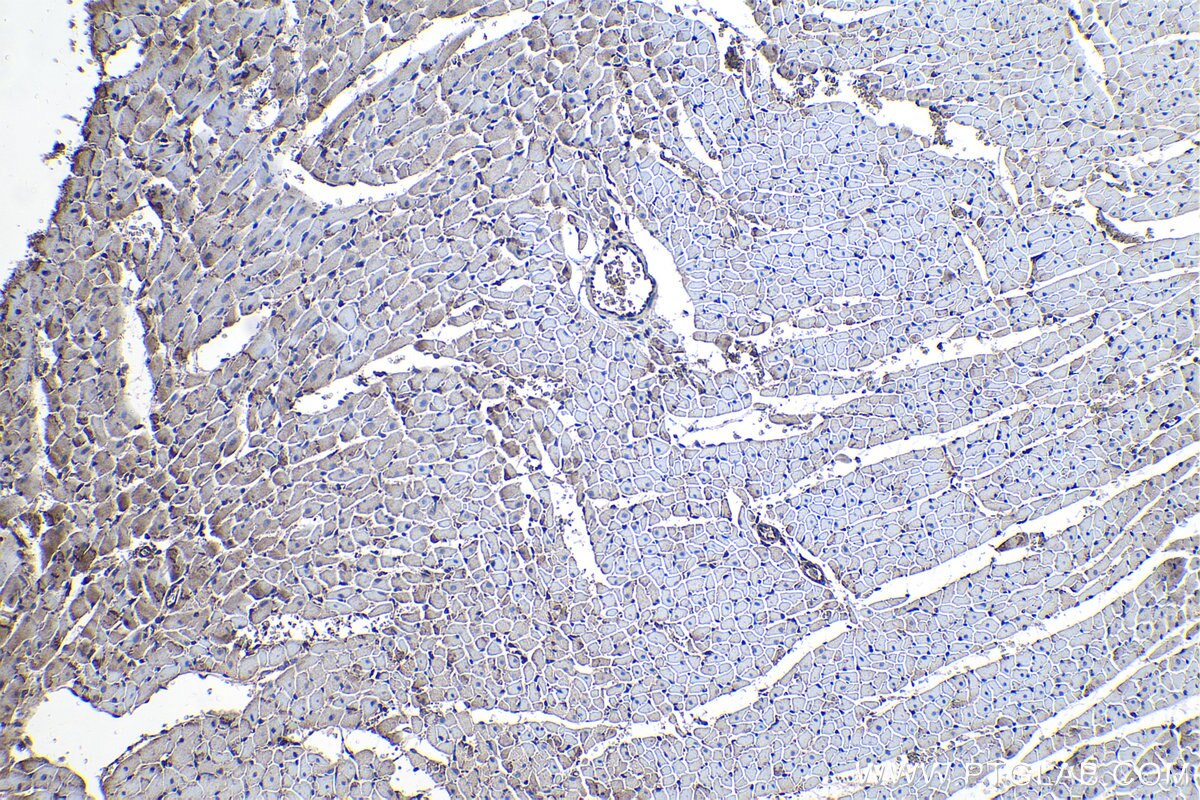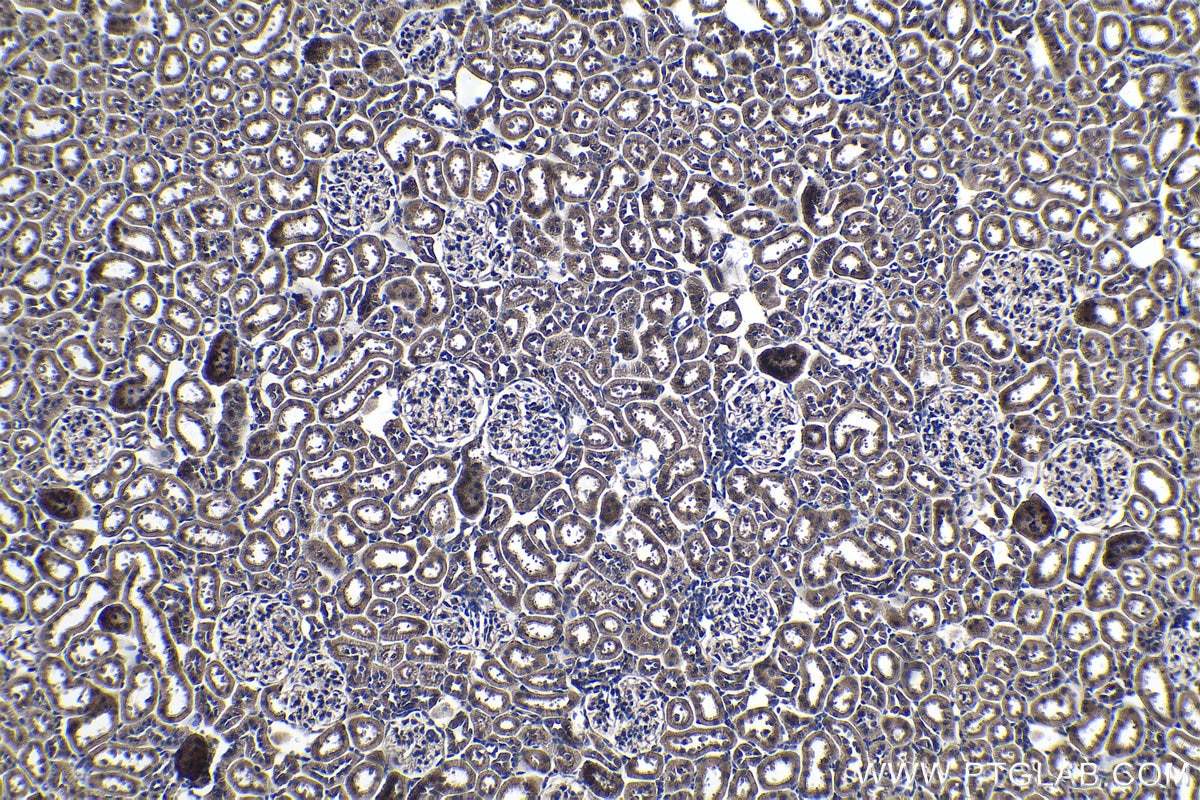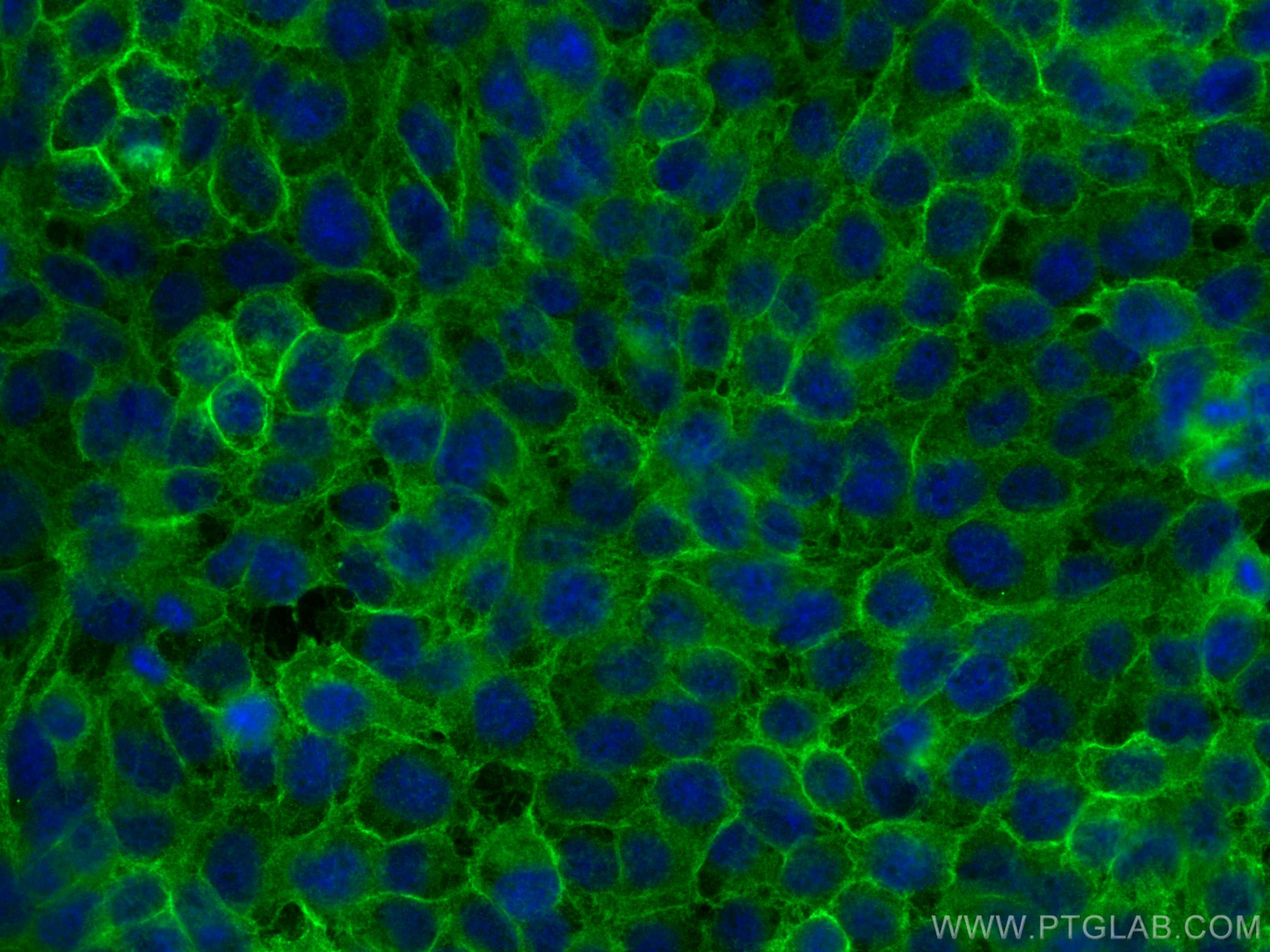- Phare
- Validé par KD/KO
Anticorps Polyclonal de lapin anti-PTPRA
PTPRA Polyclonal Antibody for WB, IHC, IF/ICC, IP, ELISA
Hôte / Isotype
Lapin / IgG
Réactivité testée
Humain, rat, souris
Applications
WB, IHC, IF/ICC, IP, ELISA
Conjugaison
Non conjugué
N° de cat : 13079-1-AP
Synonymes
Galerie de données de validation
Applications testées
| Résultats positifs en WB | cellules A431, cellules MCF-7, cellules SKOV-3, tissu hépatique de rat |
| Résultats positifs en IP | cellules A431 |
| Résultats positifs en IHC | tissu de cancer du poumon humain, tissu cardiaque de souris, tissu de carcinome urothélial humain, tissu rénal de rat, tissu rénal de souris il est suggéré de démasquer l'antigène avec un tampon de TE buffer pH 9.0; (*) À défaut, 'le démasquage de l'antigène peut être 'effectué avec un tampon citrate pH 6,0. |
| Résultats positifs en IF/ICC | cellules A431, |
Dilution recommandée
| Application | Dilution |
|---|---|
| Western Blot (WB) | WB : 1:2000-1:12000 |
| Immunoprécipitation (IP) | IP : 0.5-4.0 ug for 1.0-3.0 mg of total protein lysate |
| Immunohistochimie (IHC) | IHC : 1:50-1:500 |
| Immunofluorescence (IF)/ICC | IF/ICC : 1:50-1:500 |
| It is recommended that this reagent should be titrated in each testing system to obtain optimal results. | |
| Sample-dependent, check data in validation data gallery | |
Applications publiées
| KD/KO | See 2 publications below |
| WB | See 4 publications below |
| IF | See 1 publications below |
| IP | See 1 publications below |
Informations sur le produit
13079-1-AP cible PTPRA dans les applications de WB, IHC, IF/ICC, IP, ELISA et montre une réactivité avec des échantillons Humain, rat, souris
| Réactivité | Humain, rat, souris |
| Réactivité citée | Humain, souris |
| Hôte / Isotype | Lapin / IgG |
| Clonalité | Polyclonal |
| Type | Anticorps |
| Immunogène | PTPRA Protéine recombinante Ag3760 |
| Nom complet | protein tyrosine phosphatase, receptor type, A |
| Masse moléculaire calculée | 793 aa, 91 kDa |
| Poids moléculaire observé | 90-105 kDa, 140 kDa |
| Numéro d’acquisition GenBank | BC027308 |
| Symbole du gène | PTPRA |
| Identification du gène (NCBI) | 5786 |
| Conjugaison | Non conjugué |
| Forme | Liquide |
| Méthode de purification | Purification par affinité contre l'antigène |
| Tampon de stockage | PBS with 0.02% sodium azide and 50% glycerol |
| Conditions de stockage | Stocker à -20°C. Stable pendant un an après l'expédition. L'aliquotage n'est pas nécessaire pour le stockage à -20oC Les 20ul contiennent 0,1% de BSA. |
Protocole
| Product Specific Protocols | |
|---|---|
| WB protocol for PTPRA antibody 13079-1-AP | Download protocol |
| IHC protocol for PTPRA antibody 13079-1-AP | Download protocol |
| IF protocol for PTPRA antibody 13079-1-AP | Download protocol |
| IP protocol for PTPRA antibody 13079-1-AP | Download protocol |
| Standard Protocols | |
|---|---|
| Click here to view our Standard Protocols |
Publications
| Species | Application | Title |
|---|---|---|
Oncol Lett PTPRA facilitates cancer growth and migration via the TNF-α-mediated PTPRA-NF-κB pathway in MCF-7 breast cancer cells.
| ||
Oncogene Glucose-mediated N-glycosylation of RPTPα affects its subcellular localization and Src activation | ||
Sci Signal Clustering of phosphatase RPTPα promotes Src signaling and the arthritogenic action of synovial fibroblasts | ||
EBioMedicine The circRNA circPTPRA suppresses epithelial-mesenchymal transitioning and metastasis of NSCLC cells by sponging miR-96-5p.
|
